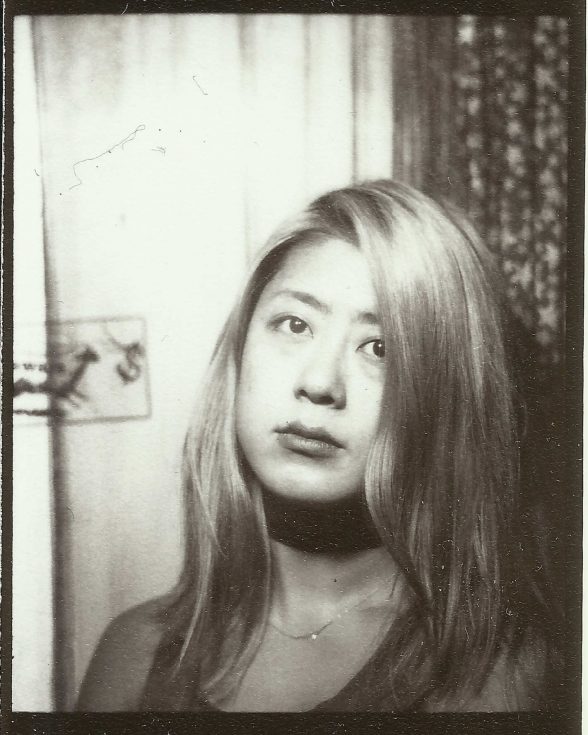Washington Heights, NYC, the late 1980s: a room shared by multiple Chinese immigrant families where ten people sleep, mattresses covering the entire floor. This squalid and cramped space is shown to us in the opening pages of Sour Heart, Jenny Zhang’s debut collection of fiction. The same room threads itself through each of the seven stories, representing a halfway point that the families in transit passed through coming from China and the traumas of the Cultural Revolution, on their way to building new lives in America.
All of Zhang’s narrators are Chinese American girls going through bifurcated childhoods, born in China but uprooted to the US by elementary school, in time for the most formative years of youth. Their families are poor in wealth but not in their love and dedication to each other. Told from candid adolescent perspectives, the stories show how family members cause each other bitter pain, but that a greater tenderness exists between them that is based in the knowledge of the great sacrifices they have made and continue to make to lift each other up.
There is an entrenched cultural stereotype that Asians are the model minority, but when examined with any degree of scrutiny the “Asian” monolith ceases to exist. On one hand, Zhang’s stories counter the model minority stereotype through nuanced youth perspectives, but they also offer some context as to why the stereotype exists about Chinese Americans. As illustrated in these stories, Chinese families have been able to move up from poverty (living in squalor, working menial jobs) to middle class status (home ownership in suburbia, kids off to attend top tier schools) within 15 years of immigrating to the US. This can be attributed to their family backgrounds and social networks, and to a dedication to education which they carried with them from their homeland.
Back in China, the parents in these stories were students at the top of their classes, young people destined for promising careers. But the Cultural Revolution stole the prime years of their youth, disrupting their studies and transplanting them to the countryside to do manual labor and farming. Not least, the successes of Chinese immigrants of that generation are connected to the tenacity which enabled them to survive the deprivations and cruelties of the Cultural Revolution and animated them to make up for lost time after arriving in America.
Today’s younger generations of Chinese writing in English (those 35-ish and under) did not live through the Cultural Revolution and weren’t old enough to be conscious of 1989’s Tiananmen Square massacre as it happened. But who among us hasn’t inherited our parents’ and grandparents’ stories of neighbor-against-neighbor violence, betrayal, and injustice of the kind re-shared in Zhang’s stories “Our Mothers Before Them” or “Why Were They Throwing Bricks?” Zhang’s stories retread some familiar ground, but she describes experiences of the Cultural Revolution—the Chinese past—with decidedly contemporary American English.
Zhang satisfyingly overwrites the model minority image by presenting examples of Chinese American youth who are more “restless, moody, lonely, rageful” than they are obedient or well-behaved. Like all youth, they crave the distance and space to “belong to a family other than my own.” They grapple with despair and loneliness that is at times exacerbated by how much our families depend on us (thus, our heartbreaking capacity to disappoint them).

On the subject of countering supposed Asian archetypes, a quality of Zhang’s writing that has been noted is her penchant for mentioning gross bodily functions—by which I mean poop—in graphic and irreverent ways. The first story quickly acclimates the reader to this practice with its descriptions of giant dumps that clog up toilets with old plumbing, and of a parent who eats their child’s vomit so as not to waste precious food. Presenting the disgusting in an unflinching tone, Zhang intends to convey the difficulty experienced by a body that is acclimating to America, literally taking in the foreignness of another country. In an interview with Vulture, Zhang asserted her belief that “Scatological writing is a core of the English canon,” and goes on to explain: “Male white writers write about that, and it can turn people off, but I think there’s a bigger turn-off when I write this way, because it really goes against our idea of the Chinese girl as this delicate, sweet lotus blossom.”
One particular scene from “The Empty the Empty the Empty” reveals the emotional core that all of Sour Heart’s stories are built around. The narrator of the story is Lucy, a fourth grader who ends up being complicit with her best friend (a white girl) in a mild form of sexual torture, in which they coerce a boy from their grade and a younger Chinese girl to have sex. As this is happening, Lucy’s mind telescopes outward from the room, as if she’s mentally fleeing the scene of the travesty she’s helping to perpetrate. She envisions her father delivering Chinese takeout “riding his bike all around Manhattan with a plastic bag tied around his face…accepting quarters for tips, forcing a smile after each delivery.” The contrast—a body subjecting others to their will versus a body constantly being subjected in physical toil—underscores the young girl’s careless self-indulgence, as well as her freedom, while putting her parents’ sacrifices in sharper relief. In this lucid and well-crafted moment, Zhang exposes the deep roots of the conflicted sense of self that a young Chinese American immigrant will carry with her, from adolescence well into adulthood. This dynamic of uneasy freedom links together all the stories of Sour Heart, Zhang’s substantial tableau of Chinese American life and family.





